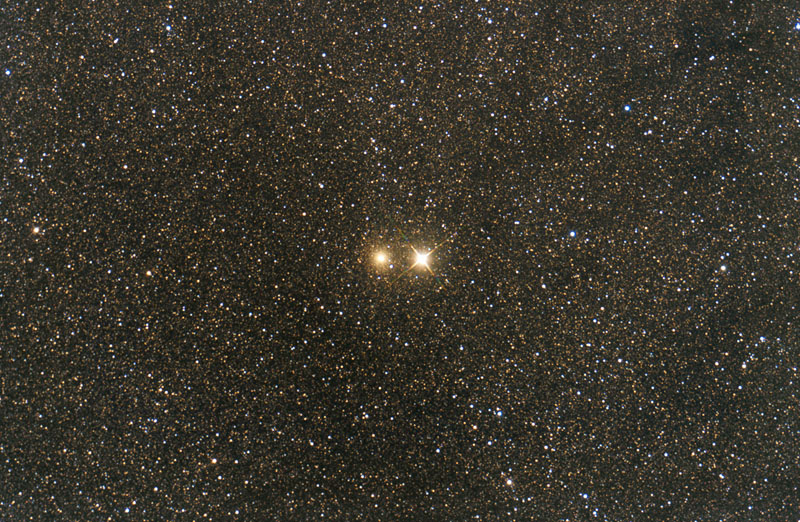Recent Submissions: 2010 July 23-26
Posted: Thu Jul 22, 2010 11:36 am
_____________________________________________________________________________
Please click on each image for best viewing; please click on the link below the
image title for more information about the image. Thank you!
_____________________________________________________________________________
<- Previous submissions
Star trails over TUG (Turkish National Observatory)
http://gaf.gokyuzu.org/img/2010-07-20.jpg
Copyright: M. Raşid Tuğral
[attachment=2]TUG_2010-07-20.jpg[/attachment][/i]
NGC 7023: The Iris Nebula
http://www.astrofoto.it
Copyright: Marco Bastoni and Filippo Barbieri
[attachment=1]ngc7023.jpg[/attachment][/i]
How Galileo Saw Saturn
http://fototek.geol.u-psud.fr/Saturn-an ... ml?lang=en
Copyright: Chiara Marmo - Photothèque Planétaire d’Orsay
NGC6441 and G Scorpi
http://www.schursastrophotography.com/x ... c6441.html
Copyright: Chris Schur There are few pairs of deep sky objects in the sky as dramatic as this one, a distant dust yellowed globular cluster combined with a brilliant orange star side by side. This has been one of my favorites to shoot for years, and I believe this image portrays it the best so far. Located in a dense stellar Milky Way field just off the tail of Scorpius, this pair makes a fine telescopic target for medium sized telescopes. The Globular cluster on the left is NGC6441, a bright 7.2 magnitude object spanning 10 arc minutes in size. It is barely resolved here, the outermost stars can be seen in the largest image as a sprinkling of dim yellow stars. Dust from our galaxy has blotted out nearly all of the blue stars here. Most stars in this object are 16th magnitude, making resolution into stars beyond the range of most small telescopes.
The brilliant K0 type orange star just to the right of the globular is 3.2 magnitude G scorpii, creating a brilliant companion object.
~ Chris Schur
Milky Way over Bryce Canyon
http://www.launchphotography.com/Milky_ ... norama.jpg
Copyright: Ben Cooper IC1318A
http://www.massimotosco.it/IC1318A.htm
Copyright: Massimo Tosco IC4812 in Corona Australis
http://www.backyardskies.com/BackyardSkies/IC4812.html
Credit: capturing: Gary Beal (New Zealand); post-processing and copyright: Emanuele Colognato (Italy) <- Previous submissions
Please click on each image for best viewing; please click on the link below the
image title for more information about the image. Thank you!
_____________________________________________________________________________
<- Previous submissions
Star trails over TUG (Turkish National Observatory)
http://gaf.gokyuzu.org/img/2010-07-20.jpg
Copyright: M. Raşid Tuğral
[attachment=2]TUG_2010-07-20.jpg[/attachment][/i]
NGC 7023: The Iris Nebula
http://www.astrofoto.it
Copyright: Marco Bastoni and Filippo Barbieri
[attachment=1]ngc7023.jpg[/attachment][/i]
How Galileo Saw Saturn
http://fototek.geol.u-psud.fr/Saturn-an ... ml?lang=en
Copyright: Chiara Marmo - Photothèque Planétaire d’Orsay
[attachment=0]saturn2_001.png[/attachment][/b]
For the 400th anniversary of Galileo's observations of Saturn, we prepared a simulation of what he must have seen through his telescope, including the effects of diffraction and atmospheric turbulence. It appeared in a PBS Documentary produced by Brooklapping a few months ago (http://www.brooklapping.com/news.php?id=952). This is one of the still images used to produce the video. ~ Chiara MarmoNGC6441 and G Scorpi
http://www.schursastrophotography.com/x ... c6441.html
Copyright: Chris Schur There are few pairs of deep sky objects in the sky as dramatic as this one, a distant dust yellowed globular cluster combined with a brilliant orange star side by side. This has been one of my favorites to shoot for years, and I believe this image portrays it the best so far. Located in a dense stellar Milky Way field just off the tail of Scorpius, this pair makes a fine telescopic target for medium sized telescopes. The Globular cluster on the left is NGC6441, a bright 7.2 magnitude object spanning 10 arc minutes in size. It is barely resolved here, the outermost stars can be seen in the largest image as a sprinkling of dim yellow stars. Dust from our galaxy has blotted out nearly all of the blue stars here. Most stars in this object are 16th magnitude, making resolution into stars beyond the range of most small telescopes.
The brilliant K0 type orange star just to the right of the globular is 3.2 magnitude G scorpii, creating a brilliant companion object.
~ Chris Schur
Milky Way over Bryce Canyon
http://www.launchphotography.com/Milky_ ... norama.jpg
Copyright: Ben Cooper IC1318A
http://www.massimotosco.it/IC1318A.htm
Copyright: Massimo Tosco IC4812 in Corona Australis
http://www.backyardskies.com/BackyardSkies/IC4812.html
Credit: capturing: Gary Beal (New Zealand); post-processing and copyright: Emanuele Colognato (Italy) <- Previous submissions










